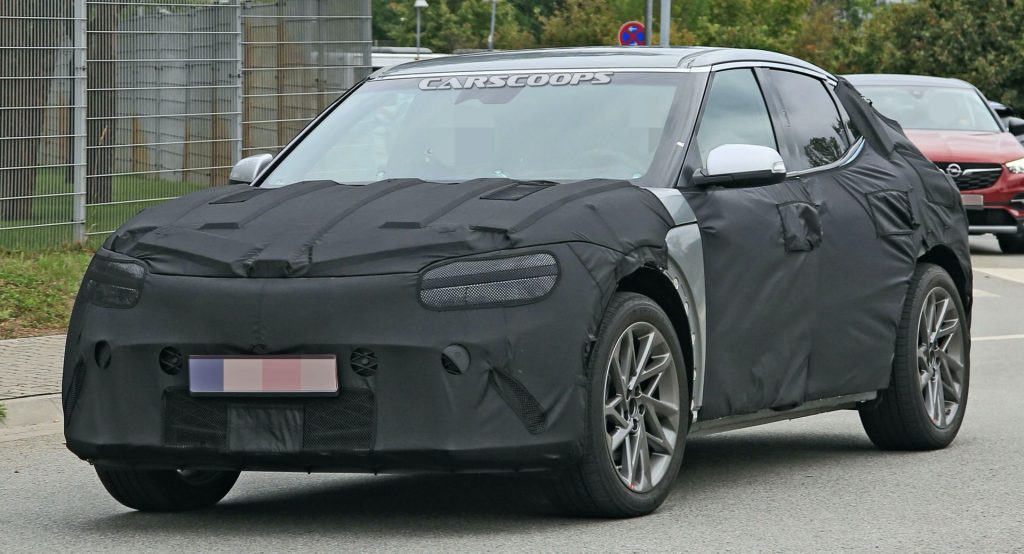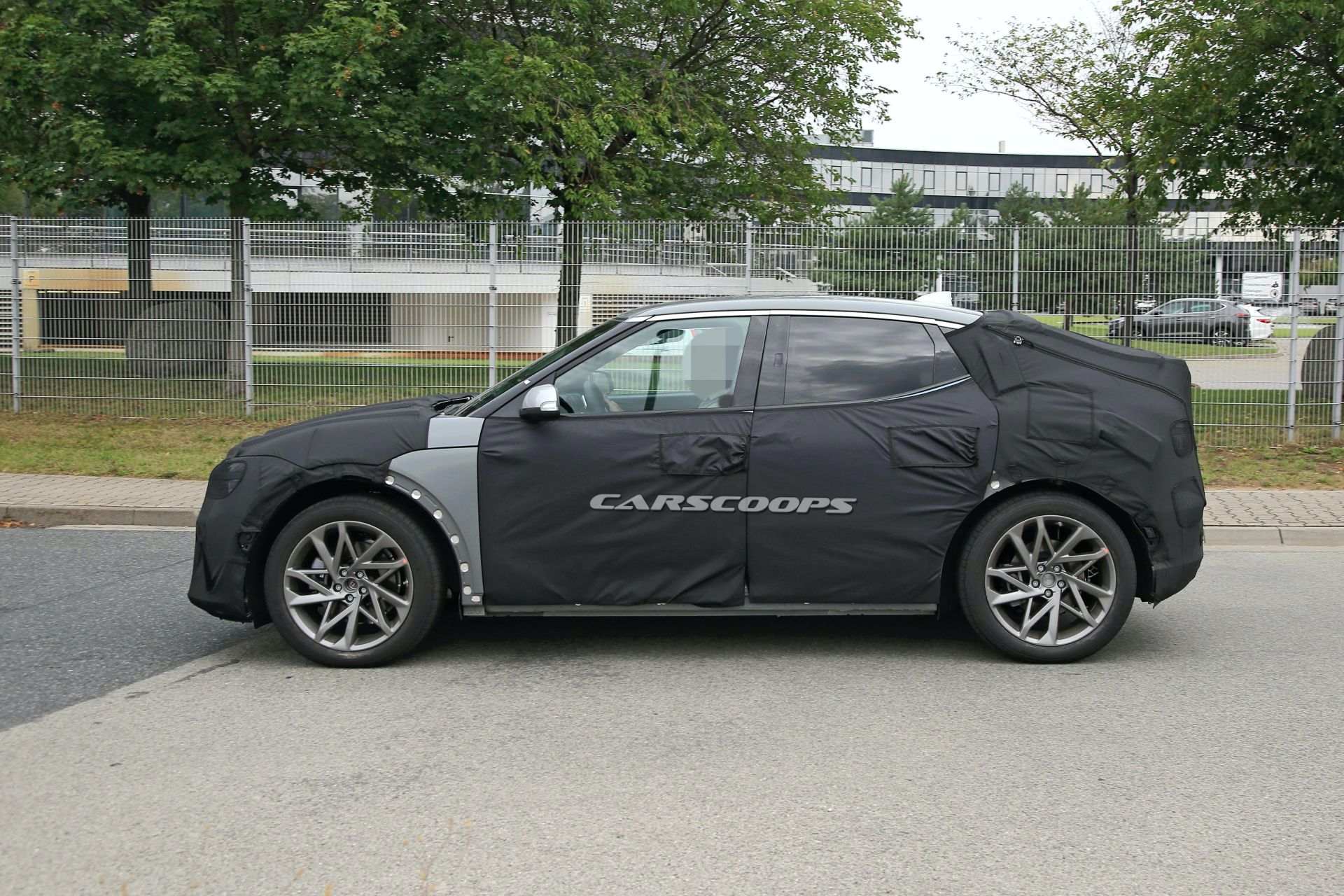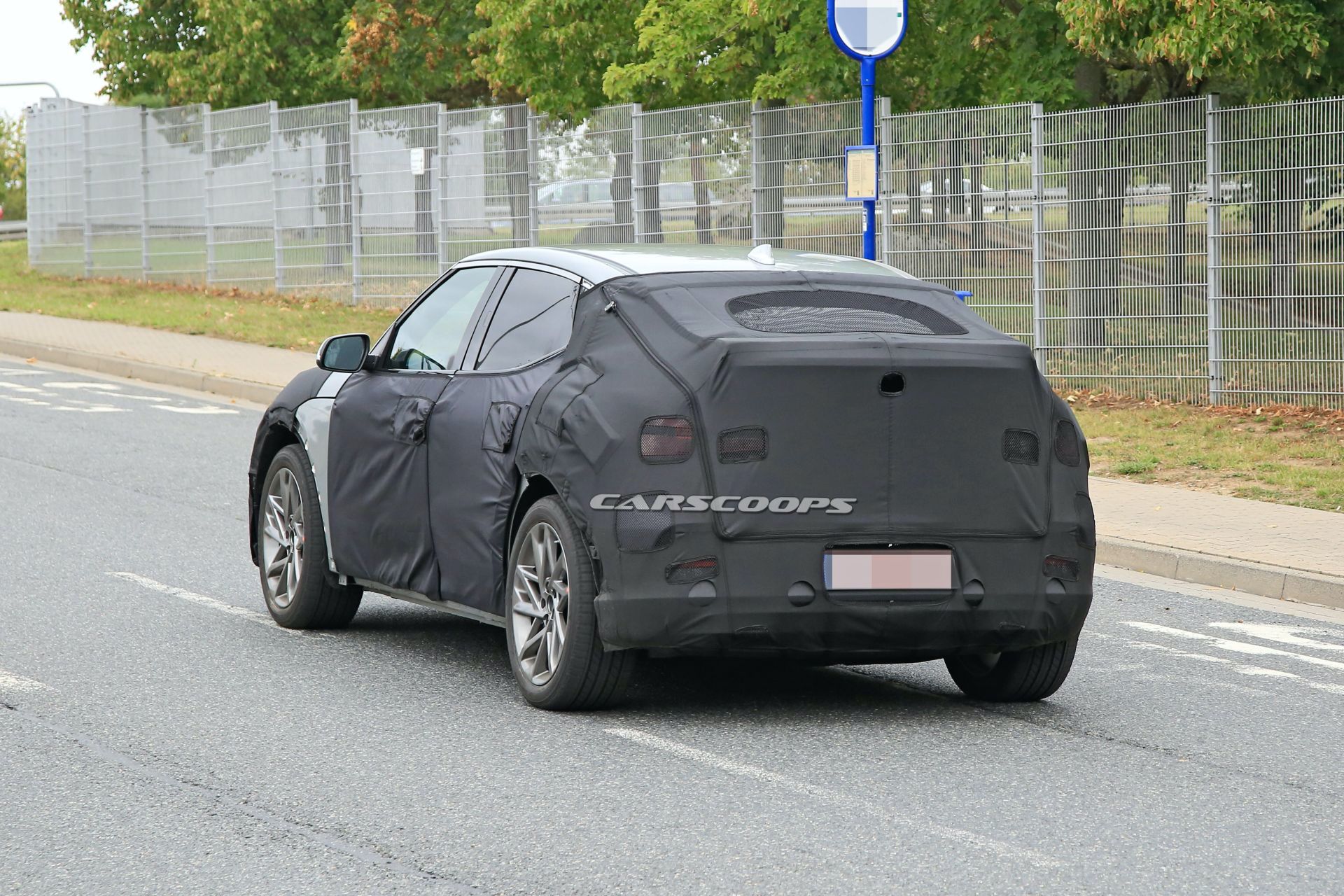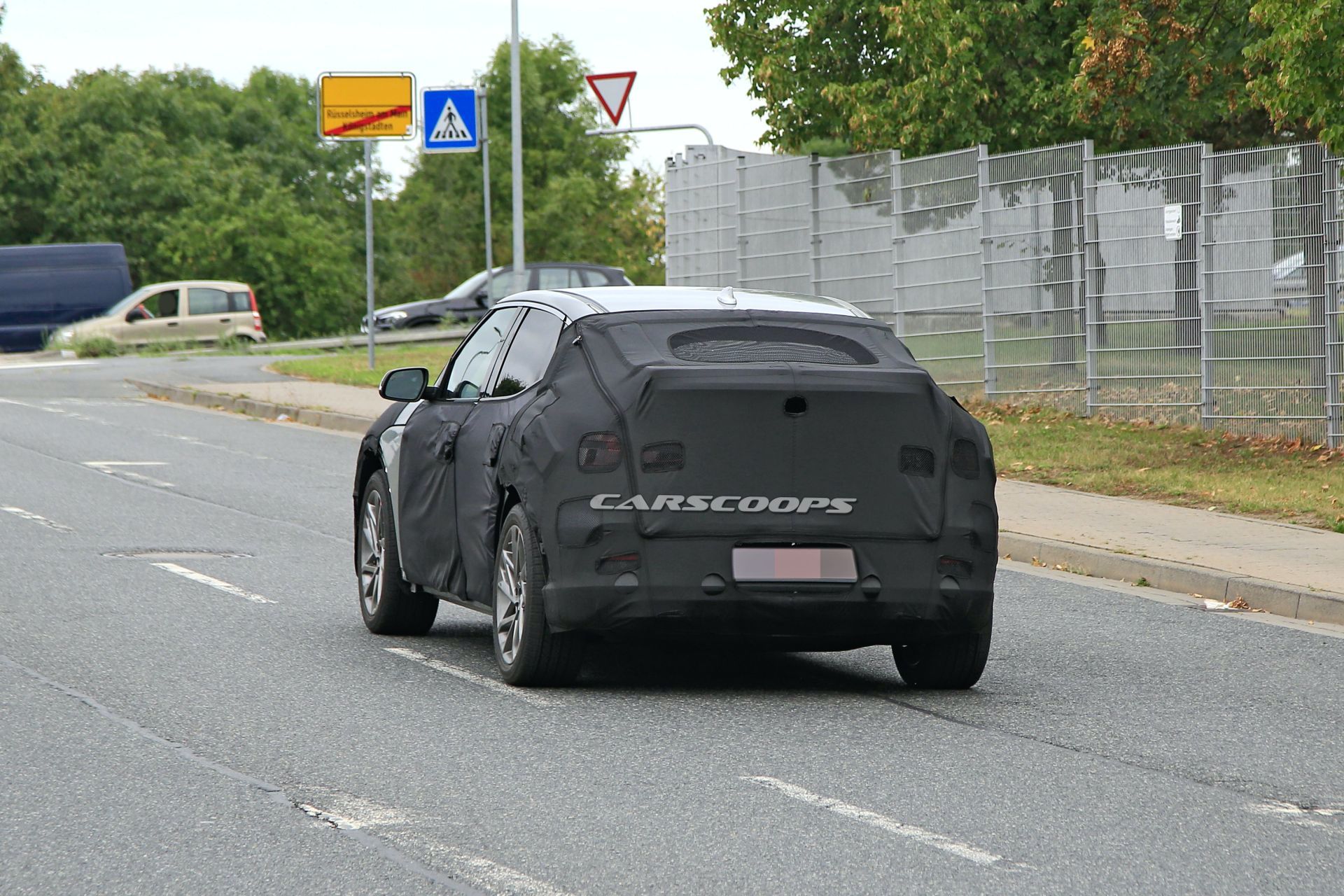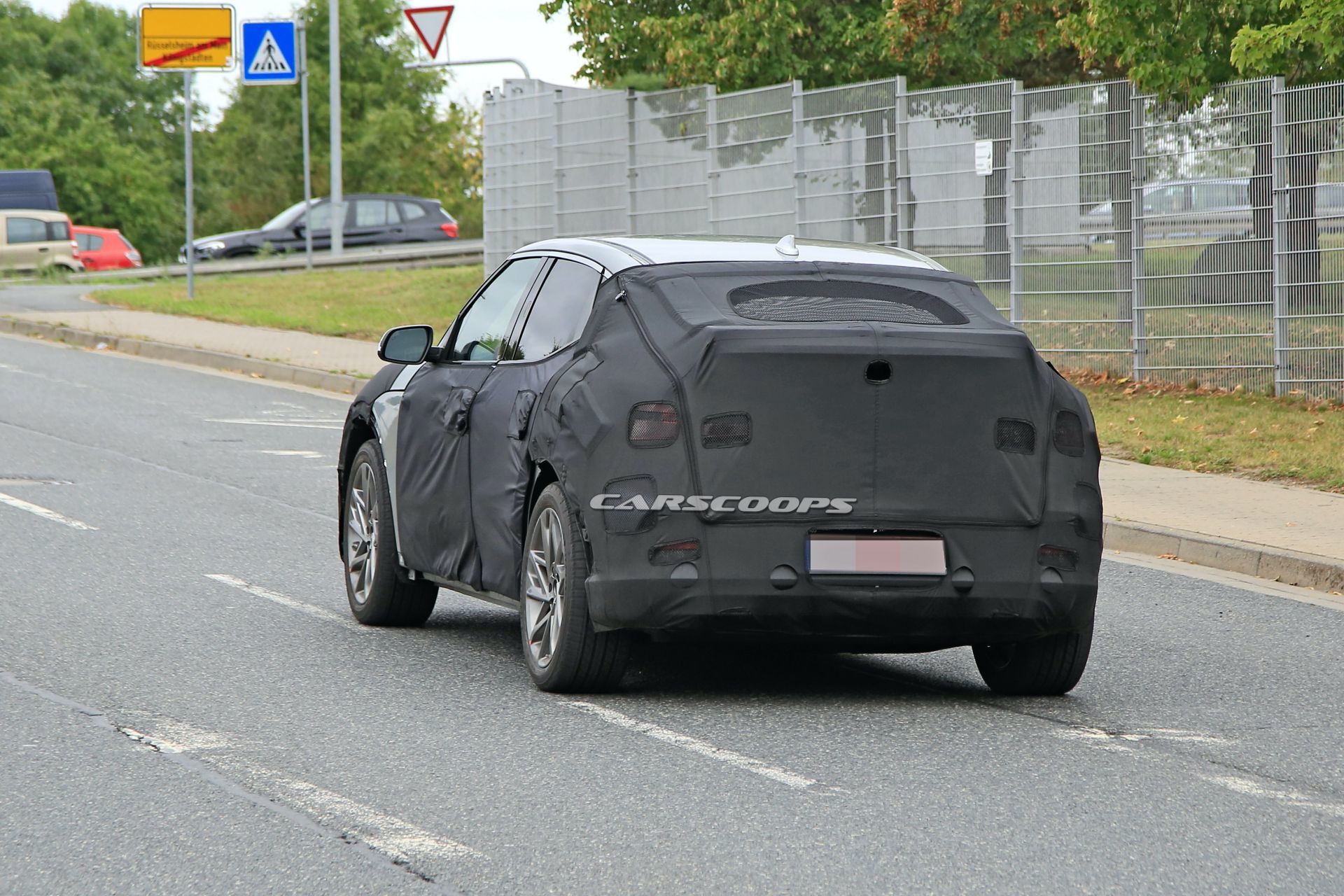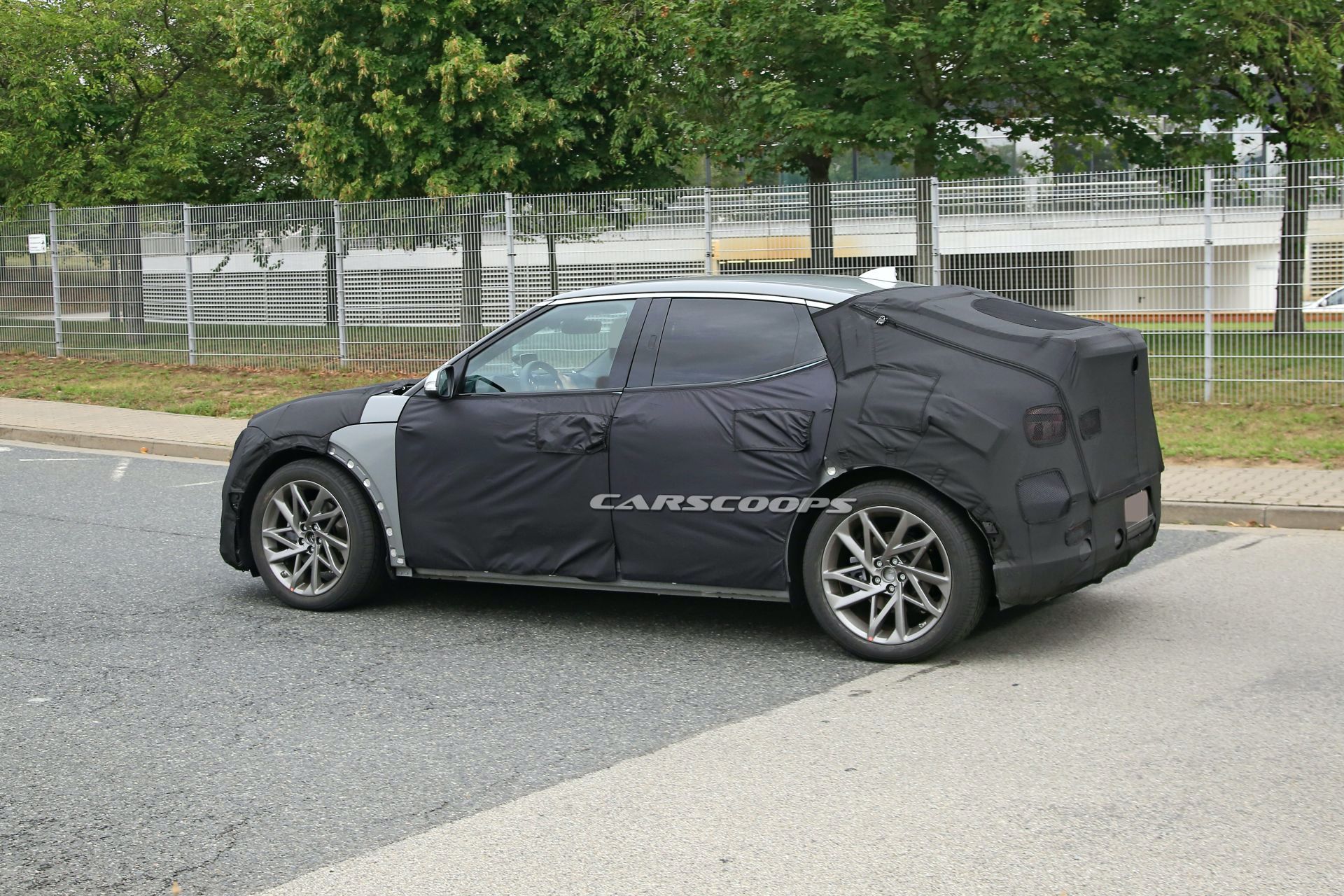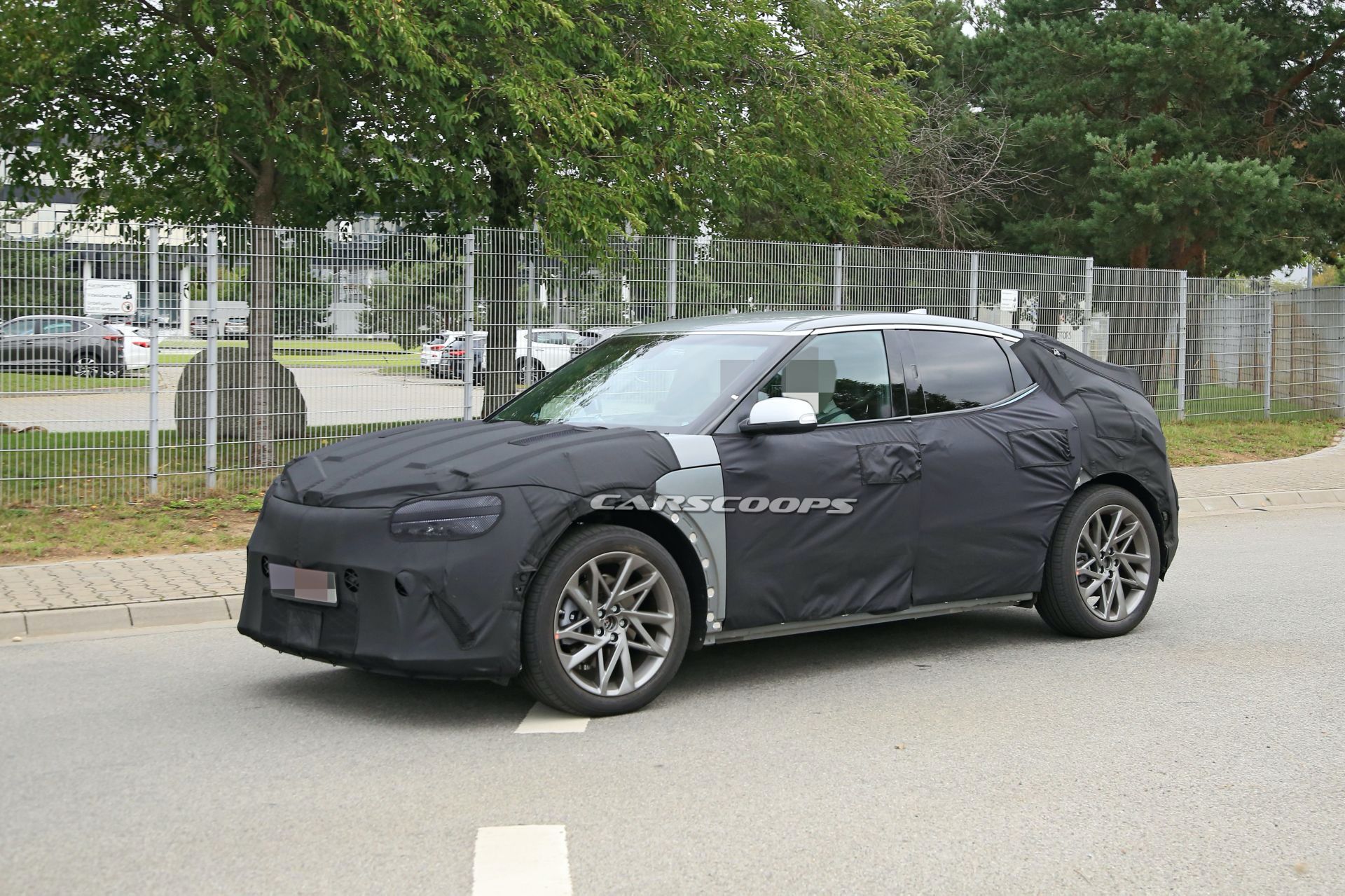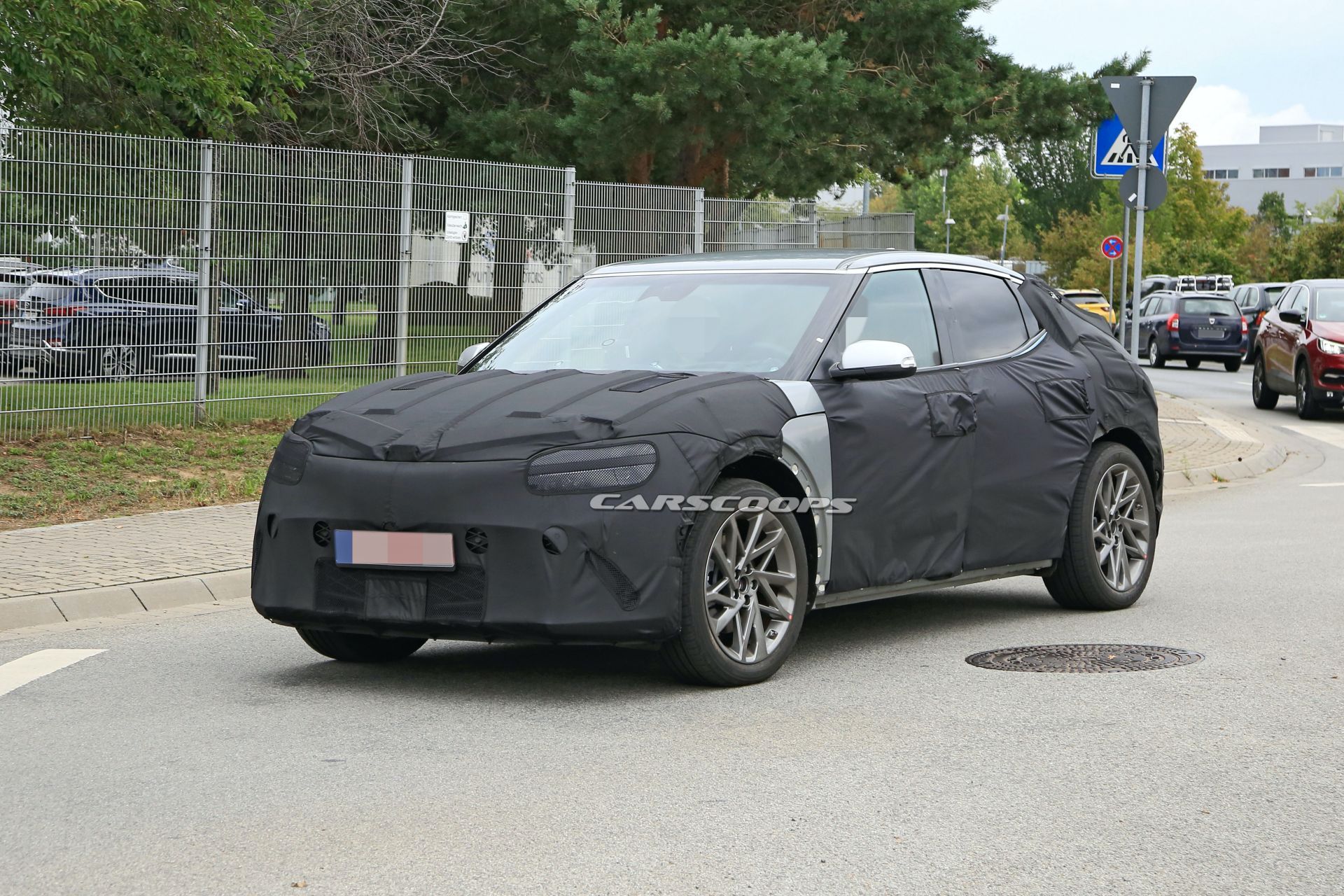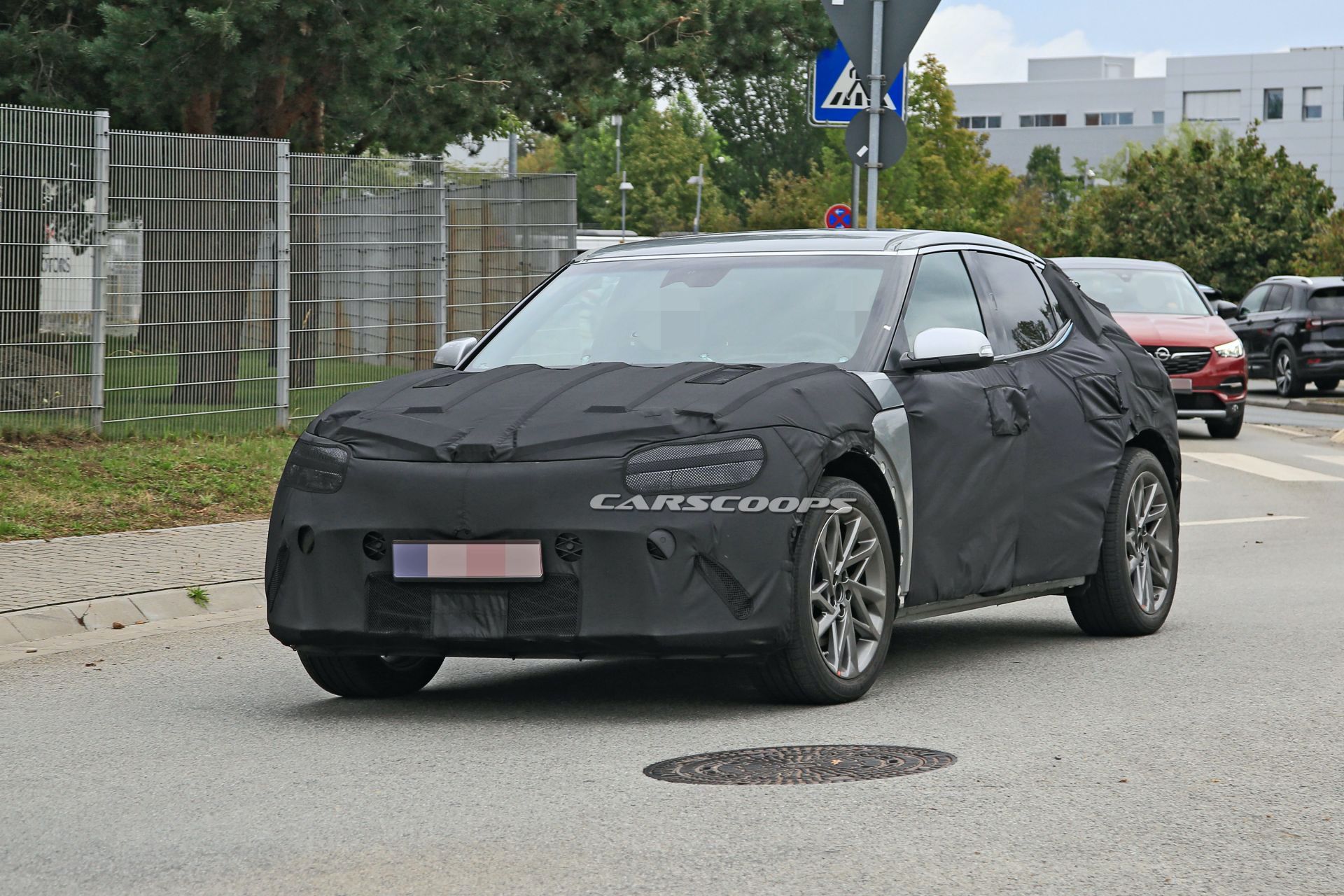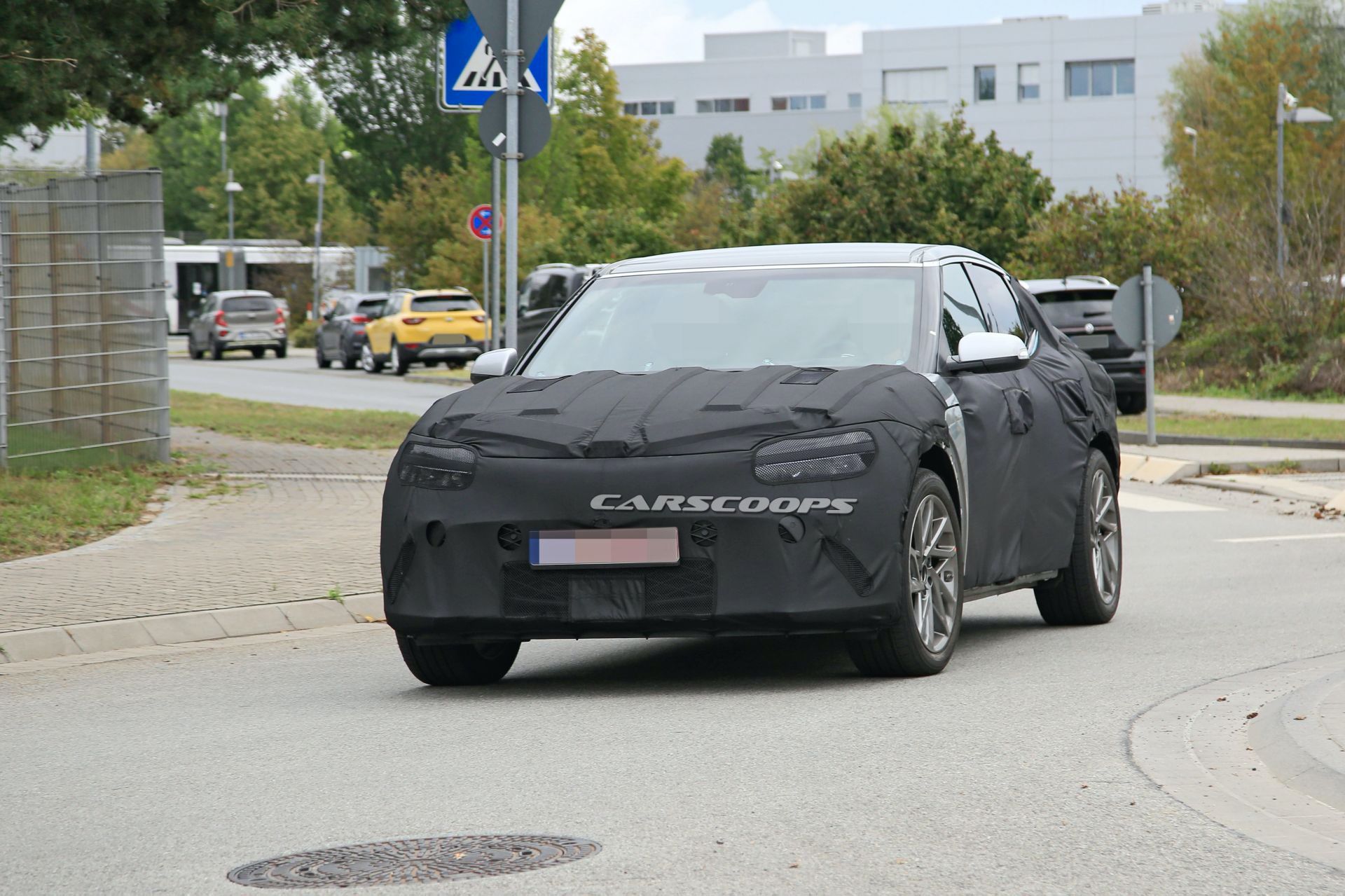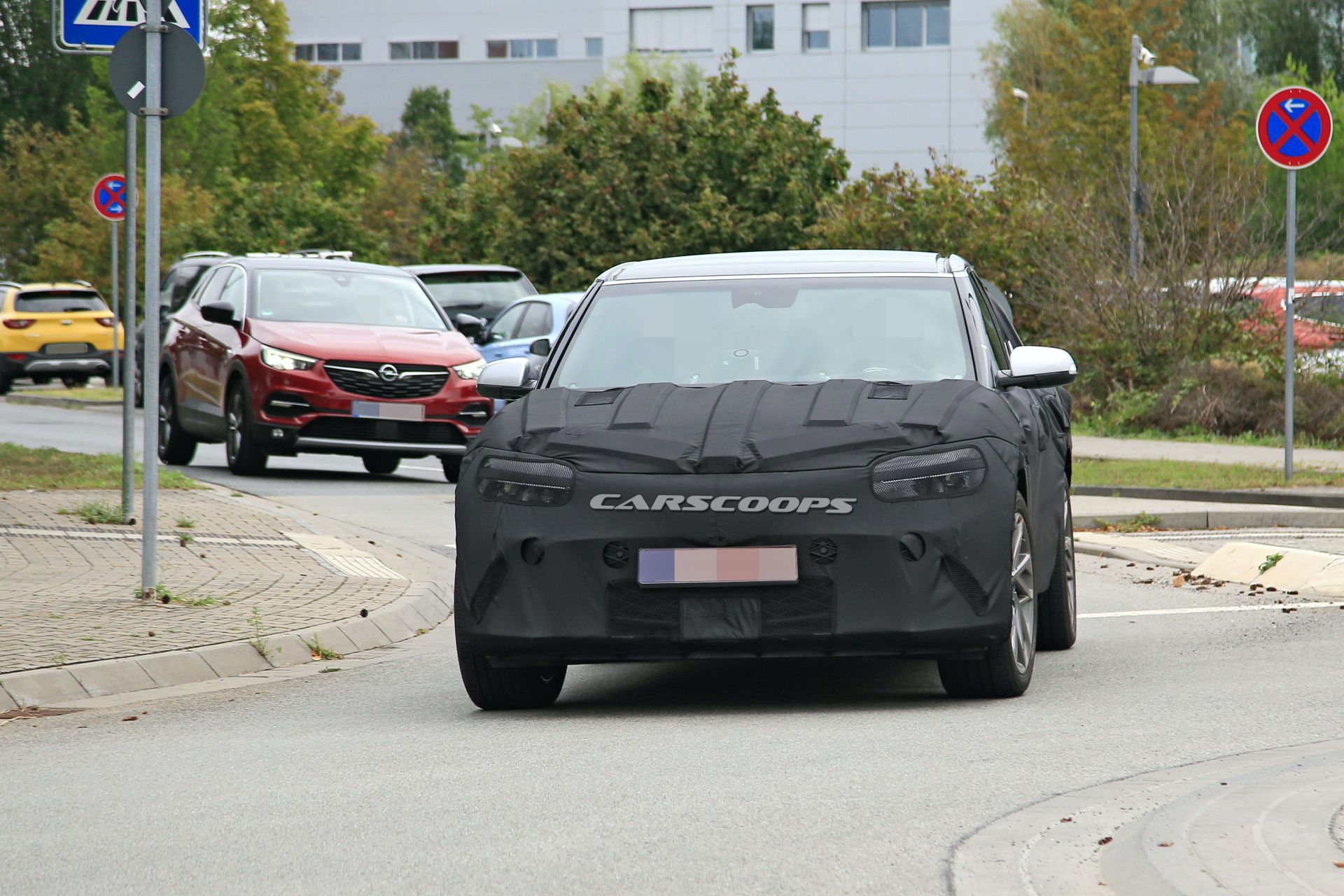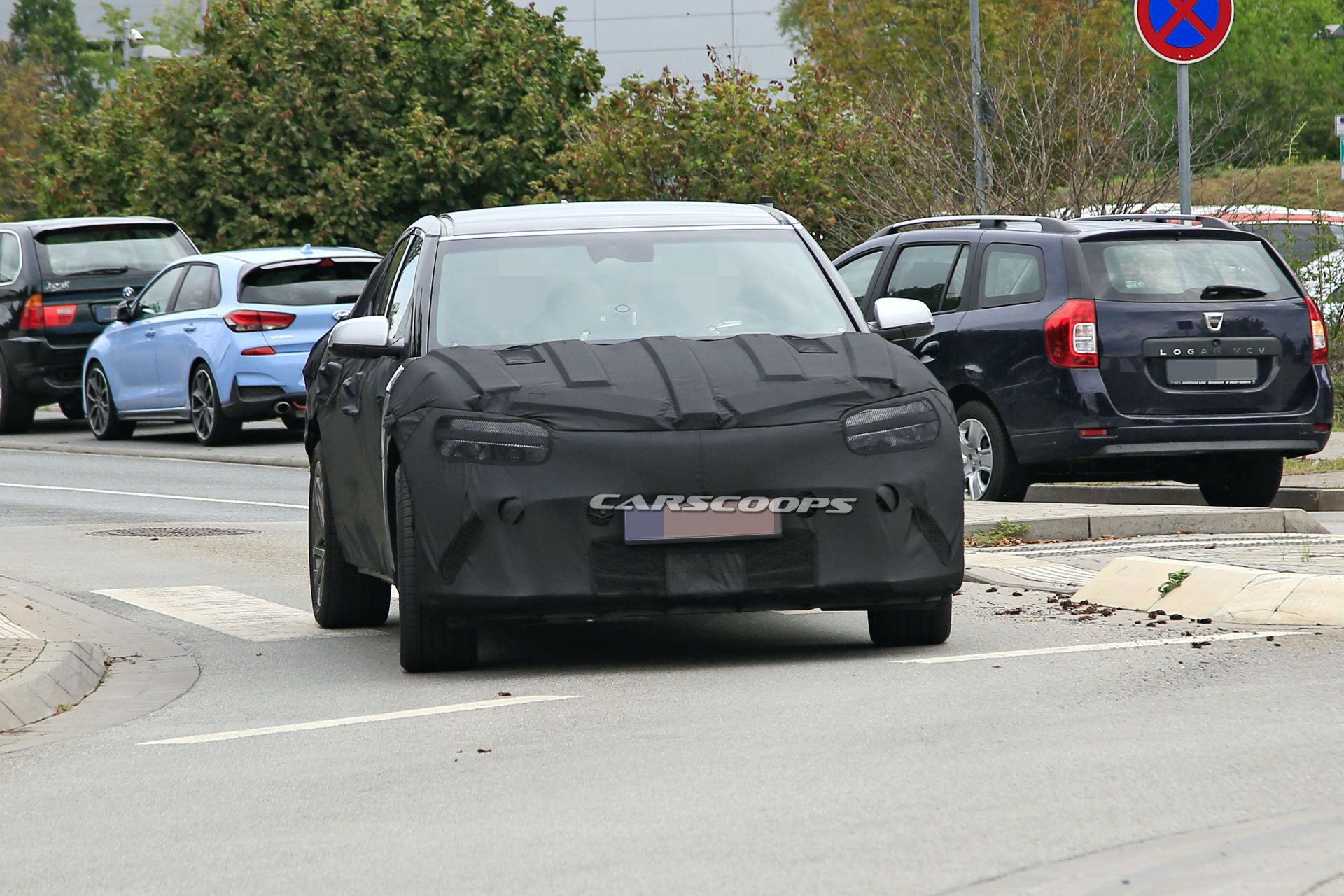Last week, Hyundai announced Ioniq will be elevated to a sub-brand dedicated to electric vehicles.
Of course, the Hyundai Motor Group plans to launch new electric vehicles for the Kia and Genesis brands as well, and today we bring you the first spy shots of the premium brand’s first standalone EV.
Codenamed Genesis JW, it will share the new e-GMP platform with the upcoming Hyundai Ioniq 5, previously known as the Hyundai 45 prototype, and the Kia CV. The fully-camouflaged prototype was spotted in Germany, near the Hyundai Motor Europe Technical Center.
See Also: 2021 Genesis G70 Shooting Brake / Fastback Spied Testing In Europe
How do we know it’s a Genesis? Well, the split horizontal headlights and taillights give it away, but there’s not much else that says Genesis about this vehicle. The front grille is completely hidden from sight and it’s not clear whether the JW will feature the same Crest Grille as existing Genesis models or will reinterpret it to suit its electric identity.
Interestingly, a spec sheet posted by The Korean Car Blog shows that the prototype is four-wheel drive. This detail, corroborated with the test vehicle’s bulky shape and reasonably high ground clearance, leads us to believe we’re dealing with a crossover. Look closely at the wheel arches and you’ll also notice that the Genesis JW has room left for cladding that will give it a more muscular appearance.
Given the kinship with the Ioniq 5 and Kia CV, the Genesis JW is a compact vehicle, which means it should compete with EVs like the Tesla Model Y, Mercedes-Benz EQB and Audi Q4 e-tron. The camouflage seems to suggest the JW features a crossover coupe body style, but there’s a lot of cladding out back to fool the viewer and keep the actual shape of the vehicle hidden.
Hyundai’s e-GMP architecture is said to offer driving ranges of up to 500 km (310 miles) depending on the battery pack fitted to the vehicle. The platform also supports ultra-fast charging, promising a 20-minute charge to 80 percent capacity. Genesis is said to have an annual production target of 22,000 units for the JW EV, which will enter production in June 2021.



